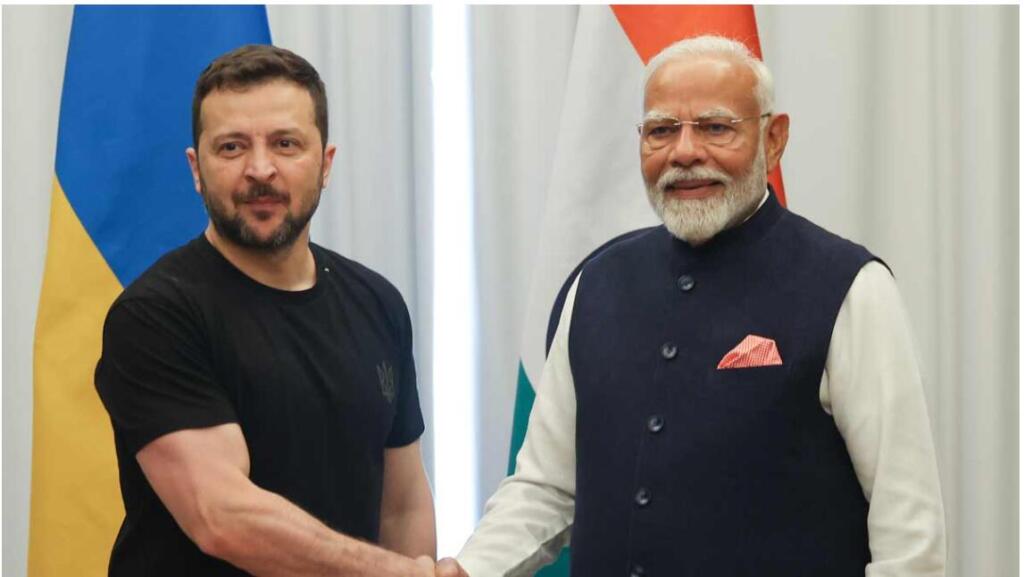In the grand theatre of international diplomacy, where stakes are high and outcomes are crucial, Prime Minister Narendra Modi has taken center stage, deftly navigating the treacherous waters of the Ukraine-Russia conflict. His recent efforts have not only safeguarded the lives of countless Indians but have also earned him accolades from world leaders. However, back on the home front, the Indian opposition remains blissfully ignorant of this diplomatic ballet, preferring instead to indulge in their favorite pastime: relentless Modi-bashing.
As Russia and Ukraine engage in a high-stakes geopolitical tug-of-war, Modi has been busy orchestrating an impressive diplomatic maneuver. He has managed to evacuate thousands of Indian nationals from the conflict zone, a feat recognized and praised by international observers. In the words of the Ukrainian President Volodymyr Zelensky, Modi’s role in the evacuation efforts was “instrumental” and “remarkable.” Meanwhile, the UN Secretary-General António Guterres lauded India’s “constructive role in promoting dialogue and peace.” But, of course, for the opposition, such high praise is merely background noise to their ongoing symphony of criticism.
Take, for example, Congress leader Rahul Gandhi’s latest pronouncement. He has criticized Modi for his “grandstanding” on the global stage, alleging that the prime minister’s diplomatic success is nothing more than an elaborate PR stunt. According to Gandhi, Modi’s achievements in Ukraine are “a distraction from domestic issues” and “an attempt to divert attention from failures at home.” Of course, Gandhi’s criticism conveniently overlooks the fact that Modi’s intervention has been a beacon of hope amid the chaos, ensuring that Indian students and workers safely returned home while other countries faltered.
Similarly, Trinamool Congress leader Mamata Banerjee has added her voice to the chorus of detractors, accusing Modi of using the Ukraine crisis as a “political tool.” Banerjee’s comments came despite the international community’s overwhelming approval of Modi’s diplomatic efforts. Her statements suggest that the opposition would prefer to see a diplomatic disaster rather than acknowledge Modi’s success, simply because it doesn’t align with their narrative of incessant criticism.
The opposition’s fixation on discrediting Modi and the BJP has become almost comical. Their rhetoric remains as predictable as it is futile—blaming Modi for everything from global warming to traffic jams while the world watches in awe as he successfully navigates complex geopolitical issues. Their criticisms, rather than offering constructive feedback, seem to be more about undermining Modi’s credibility to suit their political agenda, regardless of the positive impact of his actions.
While the opposition squabbles over trivial matters and stubbornly clings to their critique, the rest of the world is acknowledging Modi’s strategic brilliance. From easing the plight of Indians caught in a war zone to strengthening India’s position on the global stage, Modi’s achievements are a testament to his diplomatic acumen. But for those bent on tearing him down, the narrative remains stubbornly fixed on undermining his success, even if it means ignoring the positive outcomes for the country and its people.
In the end, while Modi’s global triumphs are celebrated worldwide, the opposition’s myopic focus on criticism only serves to highlight their disconnect from the real issues. As Modi continues to lead India through tumultuous times, the opposition’s persistent negativity reveals more about their political desperation than about any genuine shortcomings in Modi’s leadership.
